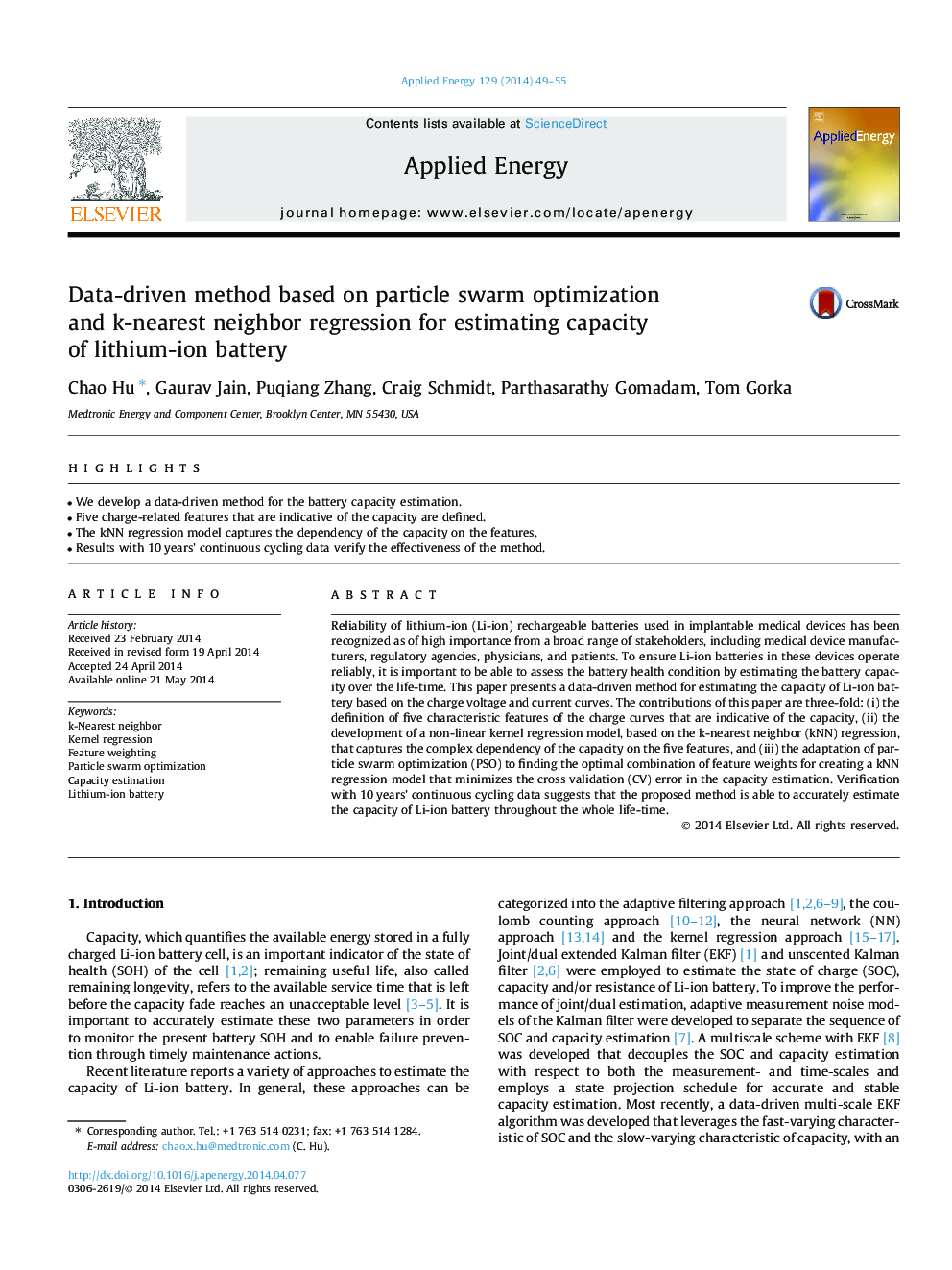| Article ID | Journal | Published Year | Pages | File Type |
|---|---|---|---|---|
| 242698 | Applied Energy | 2014 | 7 Pages |
•We develop a data-driven method for the battery capacity estimation.•Five charge-related features that are indicative of the capacity are defined.•The kNN regression model captures the dependency of the capacity on the features.•Results with 10 years’ continuous cycling data verify the effectiveness of the method.
Reliability of lithium-ion (Li-ion) rechargeable batteries used in implantable medical devices has been recognized as of high importance from a broad range of stakeholders, including medical device manufacturers, regulatory agencies, physicians, and patients. To ensure Li-ion batteries in these devices operate reliably, it is important to be able to assess the battery health condition by estimating the battery capacity over the life-time. This paper presents a data-driven method for estimating the capacity of Li-ion battery based on the charge voltage and current curves. The contributions of this paper are three-fold: (i) the definition of five characteristic features of the charge curves that are indicative of the capacity, (ii) the development of a non-linear kernel regression model, based on the k-nearest neighbor (kNN) regression, that captures the complex dependency of the capacity on the five features, and (iii) the adaptation of particle swarm optimization (PSO) to finding the optimal combination of feature weights for creating a kNN regression model that minimizes the cross validation (CV) error in the capacity estimation. Verification with 10 years’ continuous cycling data suggests that the proposed method is able to accurately estimate the capacity of Li-ion battery throughout the whole life-time.
